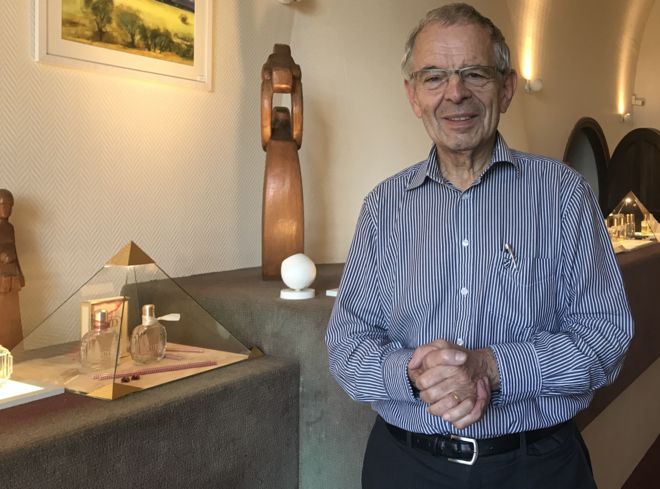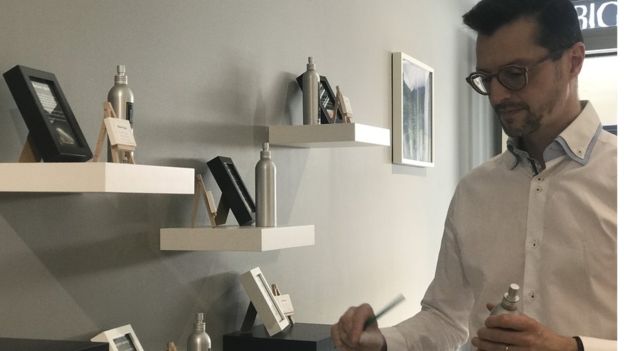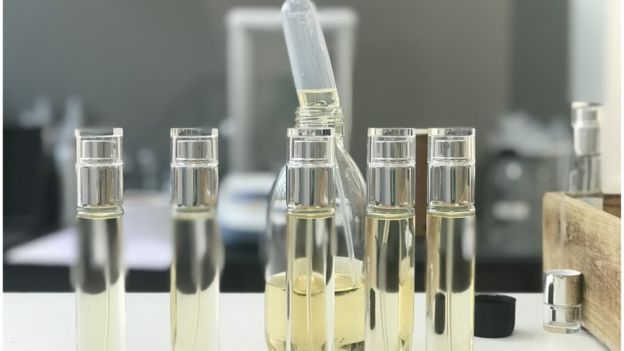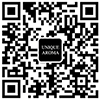HOW MILLENNIALS ARE CHANGING THE PERFUME BUSINESS
UNIQUE AROMA 2020-01-05

Whiffs of fragrant roses, jasmine and bergamot are rising from the flask.
"You smell those flowery tones? These are the basis of all women's perfume," says Guy Delforge, spraying a bottle of his own creation.
From his workshop in the citadel perched above the Belgian city of Namur, he uses ingredients from around the world to craft his signature scents.
A perfumer for 34 years, Mr Delforge, 78, notes a shift in the industry with customers pushing for natural, sustainable fragrances.
"Perfumes have existed for 5,000 years and the scents haven't changed much," he says.
"But today... customers want to know the artisan making their perfume. It reminds me of when I started selling perfume from my garage in the 1980s."
Millennials are the driving force behind the trends reshaping the sector, according to beauty industry magazine Cosmetics Business. It says they want more transparency and more gender-neutral scents - often based on citrus smells.
Citrus is one of the seven families of smells; with floral, chypre (oak moss with fruity notes), and amber often regarded as female scents, while fougère (lavender/woody) woody and leather are often grouped as male scents.

"A person is born liking one specific scent family and that preference rarely changes," says Mr Delforge, whose eponymous line carries 40 eau de parfums, with each 100ml bottle costing €51 ($57; £45).
In the heart of Namur's old city, Romain Pantoustier, "le nez" or nose in French, provides customers with transparency about the ingredients used in his perfumes.
The glass bottles of his Nez Zen range are refillable, the perfumes are gender neutral and also vegan, avoiding the musks from deer and other animal-derived produce were used in the past. Deer musk is specifically a secretion produced from the scent gland of the male musk deer.
An international convention covers the trade in musk but most products in the perfume industry now contain synthetic versions of the previously used animal scents. This is the one area where millennials definitely prefer synthetic ingredients instead of natural ones in their perfumes.
In the past other animal-derived ingredients used in perfume included ambergris from sperm whales, produced by the mammal's digestive system, and castoreum - a secretion made by beavers.

Synthetic versions of lily of the valley - one of the world's most expensive flowers - are also available. Such use of synthetics can also make products more cost effective, but often make use of petroleum and its by-products.
Mr Pantoustier, 40, says nature is the basis of his inspiration. He quizzes each customer on their favourite colours, textures, feelings and hobbies before recommending a fragrance. He also designs tailor-made perfumes for individual clients for €1,500.
"When a person comes in I ask them what they like. I use words to create a mapping in my head to guide them through my fragrances," he says, while drinking water flavoured with an edible scent. "Who am I to say what gender a scent should have?"
The Frenchman founded the Belgium-based business in August 2016 with his wife Aurélie, after working as a scent designer for some of Europe's biggest perfumers.
"I wanted to move away from a more industrial approach to perfuming, and get back to a much more artistic and emotional approach."
